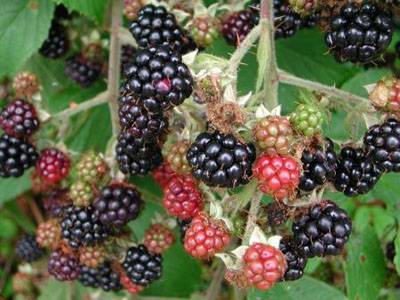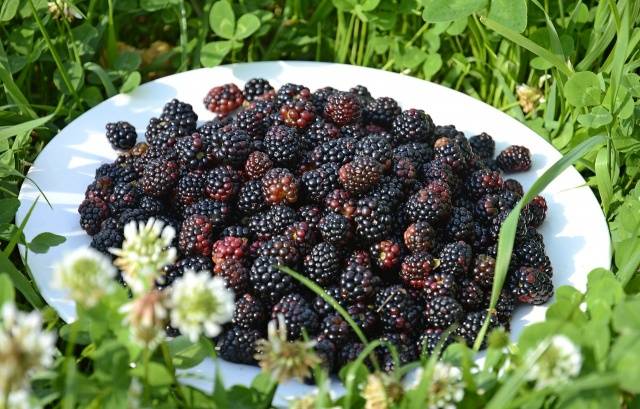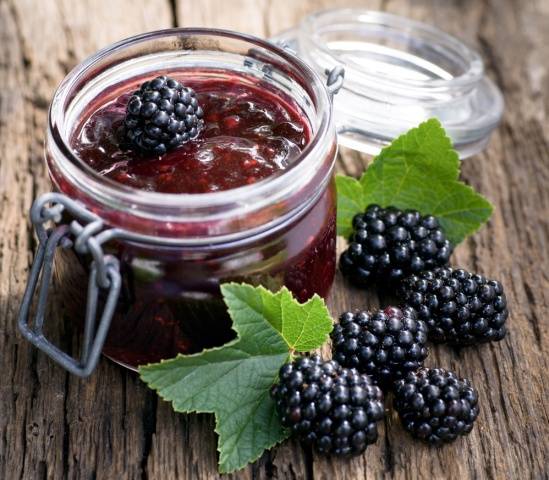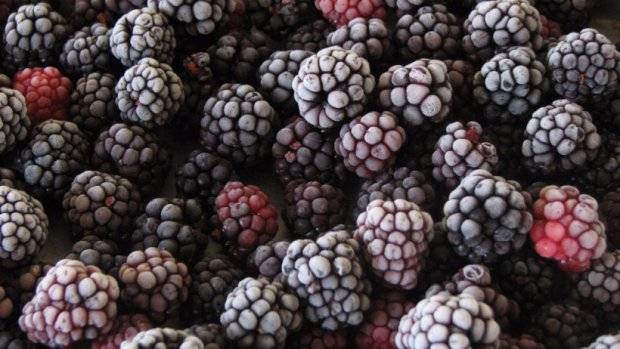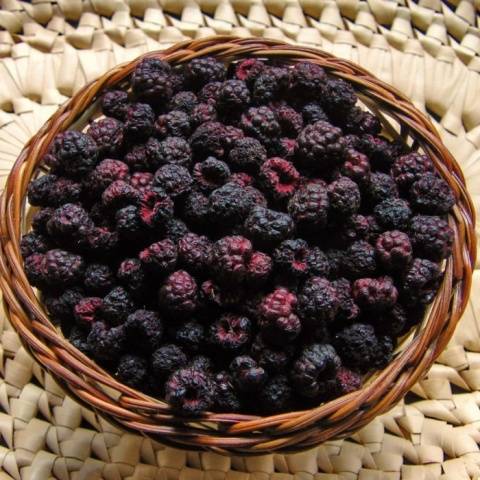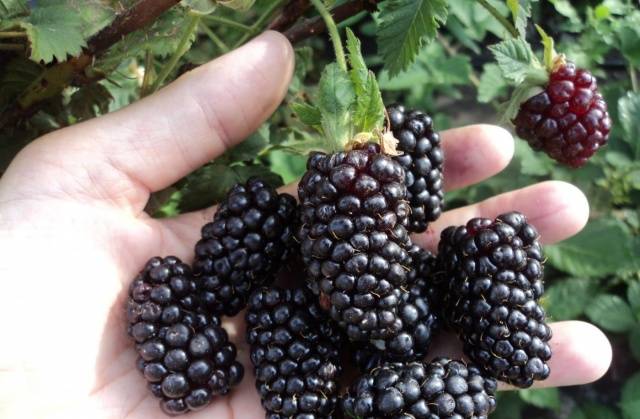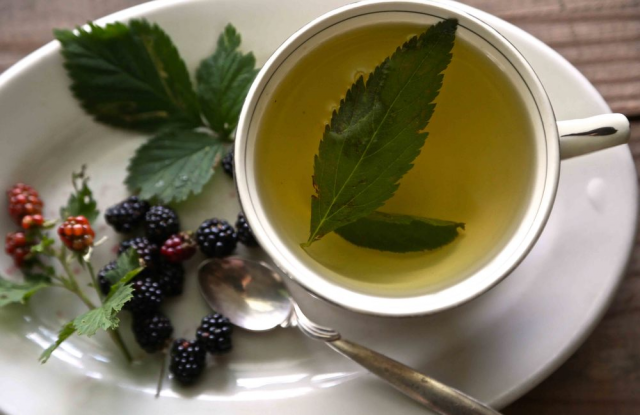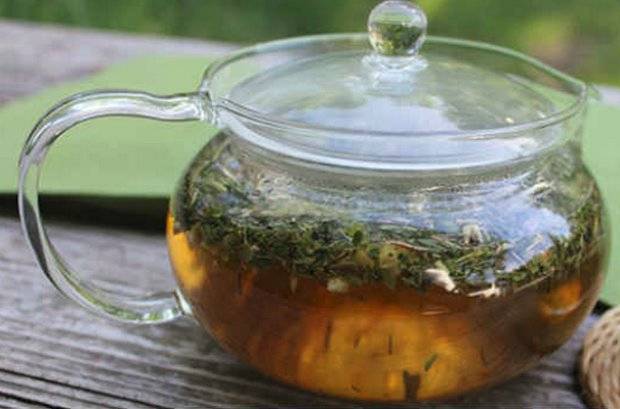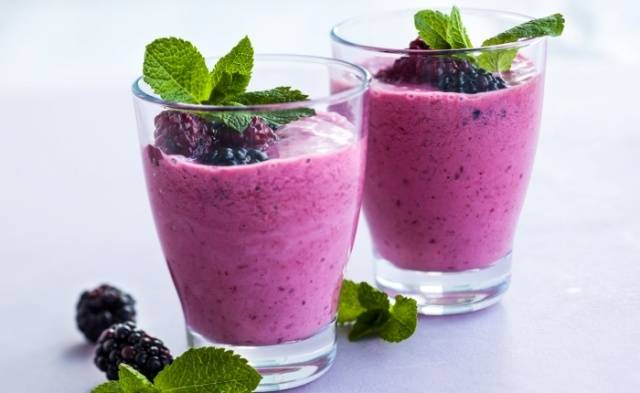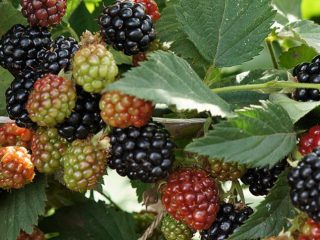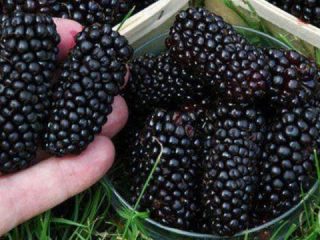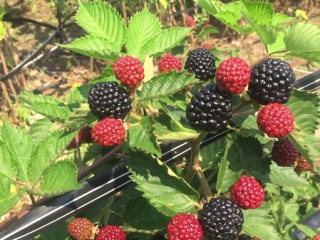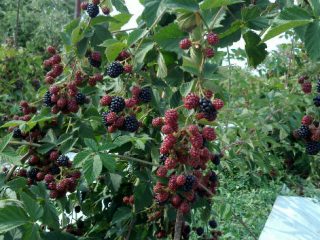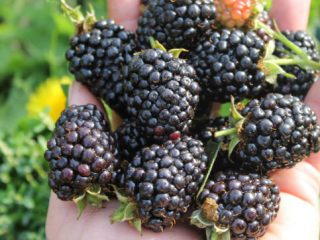Content
- 1 Composition and calorie content
- 2 The benefits and harms of garden blackberries for human health
- 3 Do berries retain their beneficial properties during processing?
- 4 Beneficial properties of blackberries and contraindications for men
- 5 What are the benefits of blackberries for women?
- 6 Why blackberries are good for children
- 7 The benefits of eating blackberries for the older generation
- 8 For what diseases can blackberries be consumed?
- 9 If you have any diseases you should stop taking berries
- 10 Standards for the consumption of blackberries
- 11 Benefits of wild blackberries
- 12 The undoubted benefits of blackberry leaves
- 13 Benefits of blackberry juice
- 14 Healing properties of blackberry stems
- 15 Effects of blackberry roots on the body
- 16 Blackberry diet
- 17 Blackberries in cooking
- 18 Blackberries in cosmetology
- 19 Harm and contraindications to taking blackberries
- 20 Conclusion
Although blackberries are often called the closest relative of raspberries, people usually know less about their properties, although in many areas its regular use can have a much stronger healing effect.
Composition and calorie content
Due to its composition, a previously inconspicuous berry can turn out to be a living warehouse of useful substances.
It contains up to 5% of various natural sugars (glucose, fructose, sucrose).
The presence of a variety of organic acids (tartaric, malic, citric, malic, salicylic) gives the berries a sour taste.
They also contain a lot of pectin, fiber, phenolic compounds, flavonols, antioxidants, tannins and aromatic substances, glycosides, and anthocyanins. The content of vitamins and minerals in blackberries is so diverse that it is impossible to do without a table.
So, 100 grams of blackberries contain:
Name of vitamin or mineral | Weight in mg | Approximate daily value, in% |
Beta carotene | 0,096 |
|
Retinol | 17 |
|
C, ascorbic acid | 15 | 23 |
B1, thiamine | 0,01 | 0,7 |
B2, riboflavin | 0,05 | 2,8 |
B4, choline | 8,5 |
|
B5, pantothenic acid | 0,27 |
|
B6, pyridoxine | 0,03 |
|
B9, folic acid | 24 |
|
PP or B3, nicotine acid | 0,5 |
|
E, tocopherol | 1,2 | 8 |
K, phylloquinone | 19,6 | 17 |
Potassium | 161,2 | 8 |
Magnesium | 20 | 7 |
Calcium | 29 | 3 |
Phosphorus | 22 | 4 |
Sodium | 0,9 |
|
Manganese | 0,7 |
|
Iron | 0,7 | 5 |
Copper | 0,16 |
|
Zinc | 0,5 |
|
Selenium | 0,3 |
|
And also nickel, vanadium, molybdenum, titanium, barium, chromium. |
|
|
It is already clear that blackberries contain almost the entire periodic table, and all these minerals and vitamins play an important role in the normal life support of the human body.
But it is also important to imagine the nutritional value of these berries:
Nutrient name | Weight in grams relative to 100 g of berries |
Protein | 1,4 |
Fats | 0,4 |
Carbohydrates | 4,3 |
Cellulose | 2,9 |
Water | 88 |
Sahara | 4,8 |
Organic acids | 2 |
Ash | 0,6 |
Omega-3 fatty acids | 0,09 |
omega-6 | 0,2 |
In addition, blackberries are low in calories, which can attract many people. 100 grams of its berries contain only 32 to 34 kcal. And given that one berry weighs on average 2 grams, the energy value of one blackberry is approximately 0.6-0.7 kcal.
The benefits and harms of garden blackberries for human health
Even in ancient times, many doctors and healers actively used all parts of blackberries to treat various ailments. Young leaves were chewed to strengthen gums, young shoots were used for bleeding and diarrhea, and even old ulcers and purulent wounds were cured with juice from the berries.
Modern medicine also actively uses both aboveground and underground organs of blackberries to treat and improve human health. It has been revealed that the fruits and other parts of garden blackberries can have the following types of effects on the human body:
- General strengthening
- Refreshing and stimulating the body's immune forces
- Calming
- Hemostatic and wound healing
- Anti-inflammatory
- Diaphoretic and diuretic
- Astringent.
Thanks to the rich vitamin and mineral complex contained in blackberries, regular consumption will completely saturate the human body with all the necessary elements and restore immunity. As a result, physical and emotional fatigue will go away, and the risk of viral infections will decrease in the off-season and winter.
If suddenly the disease has already taken you by surprise, then thanks to the anti-inflammatory and antipyretic properties of blackberries, it will provide quick help for various colds, ARVI, bronchitis, pharyngitis and sore throat, quench thirst during a feverish state, and ease headaches and joint pain.
The berries also have a beneficial effect on digestive processes. By increasing the secretory activity of the organs of the digestive system, the activity of the stomach is facilitated, and the intestinal tract is cleared of stagnation.
In addition, blackberries can ease the work of the liver and kidneys, remove stones from the corresponding organs, accelerate the flow of bile, relieve inflammation in the genitourinary system and support sexual function. Pectins contained in berries allow you to accelerate the removal of heavy metal salts, radioactive compounds and other toxins from the body.
Phenolic compounds and other substances strengthen the heart muscle, thicken and make the walls of blood vessels elastic. Thus, the blood vessels are cleared of cholesterol, and the possibility of cardiovascular diseases is reduced.
Blackberries are also able to stimulate neurons in the brain, which activates brain activity and improves memory. Moreover, regular consumption of berries promotes the production of red blood cells and improves blood composition.
Lutein, which is part of blackberries, together with vitamin A and anthocyanins, protects the eyes from the adverse effects of UV rays and from age-related changes.
In the modern world, the beneficial effects of all parts of this berry crop on the human nervous system are very important. It helps reduce the destructive effects of various stresses.
Do berries retain their beneficial properties during processing?
Blackberries traditionally begin to ripen beginning in late July. Therefore, throughout August and September you have the opportunity to eat fresh berries, which contain all the beneficial substances to the maximum and retain all of their healing properties.
Unfortunately, blackberries, like raspberries, cannot be classified as products with a long shelf life. In a regular refrigerator, fresh, undamaged berries just picked from the bush can be stored for no more than 4-5 days. If you store the fruits in the refrigerator compartment, where the temperature is maintained at about 0°, they can be stored for up to 3 weeks.
Ripe blackberries are deep black with a slight reddish tint.
In order to preserve the berries for a long time and be able to enjoy them not only at the end of summer, but also in the winter-spring period, they are subjected to various processing. Unfortunately, any processing removes some of the beneficial substances and reduces the value of the berries, so it is advisable to eat as many fresh blackberries as possible, especially since healthy people can consume them with virtually no special restrictions.
The benefits of blackberry jam
Traditionally, blackberries are used to make compotes, jams and preserves. Unfortunately, most of the vitamins are irretrievably lost during heat treatment, but still, blackberry jam can delight you with its healing properties. If prepared correctly, it retains fat-soluble vitamins A, E and K, as well as water-soluble B vitamins and vitamin PP.
In addition, pectins, fiber and phenolic compounds are preserved practically unchanged in blackberry jam.
Minerals are retained at approximately half their original content.
But for those who do not like the astringent taste of blackberries, eating blackberry jam will be the best way out.
It can help in the treatment of colds and problems with blood pressure, blood vessels and the heart.
As for the calorie content of blackberry preparations, 100 g of blackberry jam already contains from 270 to 390 kcal. Blackberry syrup is generally lower in calories, containing only about 210 kcal.
What properties are preserved when berries are frozen?
Of course, it’s not for nothing that freezing berries has become so popular in recent years - after all, it allows you to preserve almost all the healing properties of the berries. You just have to take into account that when you repeat the freezing and thawing processes, the beneficial substances evaporate each time. Therefore, you should freeze the berries in small portions so that you can consume them all at once.
The shelf life of berries prepared in this way increases to 12 months. But the calorie content of frozen berries increases slightly, to 62-64 kcal.
Dried blackberries
Another alternative way to preserve all the beneficial substances contained in blackberries is to dry them. Properly dried blackberries are no different in their beneficial properties from their fresh counterparts. It is only important that the drying temperature does not exceed 40-50°, so it is better to use special drying units for these purposes, not an oven.
Beneficial properties of blackberries and contraindications for men
Berries and other parts of the blackberry bush are useful for consumption by men at any age. In young people, they help increase endurance and strengthen the reproductive system.
Those who engage in sports or heavy physical labor will definitely appreciate the high potassium content in the berries. Because potassium can neutralize muscle pain after exercise. And other substances will prevent inflammatory processes in the joints.
Blackberries are useful to use almost without restrictions for those who are predisposed or already have diabetes.
Eating berries can serve as a good prevention against prostate cancer. In addition, a decoction of the green parts of the berry is used for urolithiasis.
In adulthood, regular consumption of blackberries significantly reduces the risk of strokes and heart attacks.
What are the benefits of blackberries for women?
For the female half of humanity, blackberries seem to be specially created to soften and facilitate the passage of many necessary life cycles.
When you include blackberries in your diet, after some time the hormonal balance is normalized, the course of the menstrual cycle is stabilized, and the symptoms of premenstrual syndrome are weakened.
Tea made from dried blackberries can ease the unpleasant symptoms of menopause. And in case of serious disorders, drinking the following herbal mixture in the form of tea for 10 days is very effective:
- 25 g blackberry leaves
- 20 g woodruff
- 15 g marsh cudweed
- 20 g motherwort herb
- 10 g of hawthorn berries and flowers.
This mixture can heal and fill women with vital energy even in the most seemingly hopeless situations.
The invaluable benefit of blackberries is that they can reduce skin oiliness, make pores less pronounced, rejuvenate facial skin, and restore hair.
Blackberry decoctions and infusions can help with problems with the kidneys and urinary organs.
The benefits of berries during pregnancy
Of the many healthy natural products, blackberries are not only possible, but also necessary to be consumed during pregnancy. This will only benefit both the developing baby and his mother.
After all, the berry, rich in vitamins and various enzymes (including one containing an analogue of folic acid), will support a successful pregnancy and protect the mother and child from the possible adverse effects of various toxins.
Due to their high dietary fiber content, blackberries will be beneficial for those who suffer from constipation.
Is it possible to eat blackberries during lactation?
Restrictions on a mother’s eating blackberries during breastfeeding may apply only to the very first months of the baby’s life. But, already, starting from the third or fourth month of breastfeeding, you can afford a few berries. If neither the mother nor the baby has any negative reactions, then you can safely include blackberries in your weekly diet.
Why blackberries are good for children
In general, eating blackberries does not usually cause any allergic reactions in children. Several berries, especially fresh ones, can be offered to a child for testing already at the age of 4-5 months.
If everything goes well, then, starting from 6-7 months, if possible, introduce healthy blackberries into the child’s diet.
After all, they strengthen the protective functions of the child’s body, help the formation of a stable nervous system, and serve to prevent anemia and iodine deficiency.
In addition, in the first years of a child’s life, it is difficult to overestimate the benefits of berries in the fight against various intestinal infections and diarrhea.
The benefits of eating blackberries for the older generation
The rich composition for which blackberries are famous can help stimulate the activity of the entire brain, improve memory, and fight atherosclerosis.
Berries also contain antioxidants that can slow down the aging process and prevent the premature appearance of wrinkles. The presence of magnesium, calcium and phosphorus helps in the fight against osteoporosis.
For what diseases can blackberries be consumed?
Blackberries are good for almost everyone, but their use is especially recommended for people with the following diseases:
- Diabetes mellitus (lowers blood sugar levels)
- Problems with the gastrointestinal tract. If you have a stomach ulcer, it is better not to eat berries, but to drink their juice.
- Cardiovascular
- Oncology (stops the growth of tumors, reduces the risk of their formation)
- Nervous system diseases
- Joint diseases
- Gynecological diseases
- Eye diseases, including age-related vision loss
- Atherosclerosis
- Some kidney and urinary system problems
- Hypertension (lowers blood pressure)
- Anemia, anemia
- Colds and pulmonary diseases
- Stomatitis and inflammation of the oral cavity
If you have any diseases you should stop taking berries
Despite the great benefits that blackberries bring, you should refrain from consuming them if you have the following diseases:
- Acute pancreatitis
- Periods of exacerbation of ulcers, gastritis, colitis
- Diabetes mellitus - severe forms
- Diseases of the excretory system in the acute period
Standards for the consumption of blackberries
Small children and nursing women should start eating 2-3 blackberries, and the optimal norm for them would be to eat 100 grams of berries 2-3 times a week.
It is quite acceptable for pregnant women to eat blackberries every day, 100-200 g at a time.
For all other special norms for the use of this healthy berry, proceed from the needs of your body. But keep in mind that it is advisable to observe moderation in everything and not to overeat even blackberries, which only bring benefits.
For treatment with blackberries, you should focus on the corresponding recipe standards. In order to strengthen the immune system, for example, drink a third of a glass of blackberry juice every day.
Benefits of wild blackberries
Forest blackberries are practically no different in composition from garden forms. Traditionally, only the entire plant is used: from roots to berries, while garden blackberries mainly use berries and leaves.
The benefits of wild blackberries may also lie in the fact that they:
- Cures bleeding gums
- Heals ulcers and ulcers
- Removes salts for gout
- Removes neuroses and insomnia
- Eliminate hoarseness and shortness of breath
The undoubted benefits of blackberry leaves
Blackberry leaves have no less valuable and rich composition than berries, so the benefits of consuming them are not small. The leaves contain a lot of tannins (up to 20%), flavonoids, leukoanthocyanins, minerals, amino acids and vitamins, including ascorbic acid.
A drink from the leaves has a beneficial effect on polyarthritis, hernia, osteochondrosis and other joint diseases.
It also helps well in treating skin problems - dermatitis, eczema, rashes, and even eliminates the consequences of bruises. A paste of crushed leaves will help heal almost any ulcer or wound.
An infusion of leaves is used for problems with the digestive system.
It is prepared in this way: 2 tablespoons of dried blackberry leaves are poured into 400 ml of boiling water and left in a thermos for 3 hours. Take 100 ml 20 minutes before meals 3-4 times a day.
Often, just like berries, infusions from the leaves are beneficial for various menstrual disorders.
They are used to treat varicose veins, metabolism, anemia, vitamin deficiency and stomatitis.
In order to prepare an infusion for mouth rinsing for stomatitis, pour 4 tablespoons of leaves into 400 ml of boiling water, let it brew for 30 minutes and strain.
Blackberry leaf tea
Self-prepared tea from young blackberry leaves according to the following recipe is very useful for general strengthening of the body. Pick as many young blackberry leaves as possible (it is better to do this at the end of May, immediately after they bloom). If possible, add an additional half of the total number of raspberry leaves to them.
Mix, let them wilt, and then mash with a rolling pin, sprinkle with water and, wrapped in natural fabric, hang somewhere warm, but not bright. During this time, fermentation will occur and the leaves will develop an attractive, floral-like aroma.
After this, the leaves are quickly dried in a dryer at low temperature.
Be sure to store tea in a tightly closed jar.
Benefits of blackberry juice
The benefits of blackberry juice, especially squeezed from fresh berries, cannot be overestimated. It helps with feverish conditions and relieves headaches.Effective for women's diseases and all problems related to digestion.
Has a calming effect. 50-70 ml of blackberry juice, drunk every day for a month, will help solve many of the above problems.
Contraindications for use are exactly the same as for using blackberries.
Healing properties of blackberry stems
Blackberry stems provide almost the same benefits as the leaves, only they are less convenient to use and contain a little less juice.
The following infusion will help against neurotic diseases. Collect about 50-100 grams of young blackberry shoots with leaves, chop them finely. Take two tablespoons of the resulting greens, pour 500 ml of boiling water over them, heat for 20 minutes in a water bath. Then cool, filter and take 50 ml three times a day for two weeks.
Diabetics will benefit from this drink to reduce blood sugar levels. Boil a teaspoon of chopped blackberry stems and leaves for 10-15 minutes in 200 ml of water, cool, strain and drink throughout the day. Next time it is better to prepare a fresh drink.
Effects of blackberry roots on the body
Blackberry roots are usually harvested in the fall. They are consumed in the form of a decoction. A decoction of the roots can benefit:
- As a diuretic for dropsy
- When breaking down and removing stones and sand from the kidneys
- In the treatment of diseases of the throat and oral cavity
- In the treatment of ascites
- For inflammation of the upper respiratory tract and pulmonary hemorrhages.
In the latter case, the decoction is prepared in the following way.Pour 20 g of crushed dry blackberry roots (or roots with leaves) into 200 ml of boiling water, heat for 20 minutes, leave for 3 hours, filter and then add boiled water to get the original volume. Use 2 tablespoons before meals 3-4 times a day.
Blackberry diet
Due to the low calorie content of blackberries, they are often used in a variety of diets for weight loss.
You can use several recipes suggested below:
Recipe No. 1
- For breakfast – 250 g of berries + green tea or mineral water
- For lunch – a glass of freshly squeezed fruit or berry juice
- For lunch - vegetable soup, light salad, fish or chicken with rice, buckwheat or vegetables
- For afternoon snack – 250 g of berries
- Vegetables for dinner
The duration of the diet is from 2 weeks to 2 months.
Recipe No. 2
- Meal 1: Low-fat cottage cheese + 100 g berries
- Meal 2: 200 g fresh berries
- Meal 3: Boiled rice with vegetables + lean meat
- Meal 4: Blackberry smoothie
- Meal 5: 100 g berries and 250 ml yogurt
Blackberries in cooking
You can prepare many delicious dishes from blackberries; they go best with flour and curd products.
Cottage cheese casserole with berries, blackberry charlotte, jelly, jelly and berry puree are popular. For the winter, they usually prepare blackberry jam, jam, compote, as well as wine, liqueur and syrup.
Blackberries in cosmetology
Regular consumption of blackberries improves the appearance of skin, nails and hair.
But you can also make a face mask from the berries.
Grind about 40 grams of berries into puree, add 15 g of sour cream and 12 ml of honey. Mix thoroughly until the mixture is completely homogeneous. Spread the mask on your face, neck and chest and leave for half an hour. When finished, rinse with warm water.
Harm and contraindications to taking blackberries
There are no strict contraindications to taking blackberries. You just need to be careful in consuming this berry during exacerbation of some of the diseases listed above.
In addition, in rare cases, an allergic reaction may occur to blackberries. Therefore, if you are trying it for the first time, do not overindulge in the amount of berries you eat.
People with low blood pressure should treat it with caution - enjoy it in moderation.
Conclusion
Blackberries are a unique berry, the benefits of which for the body are undeniable. Moreover, it can help cure many diseases and alleviate various painful conditions.


